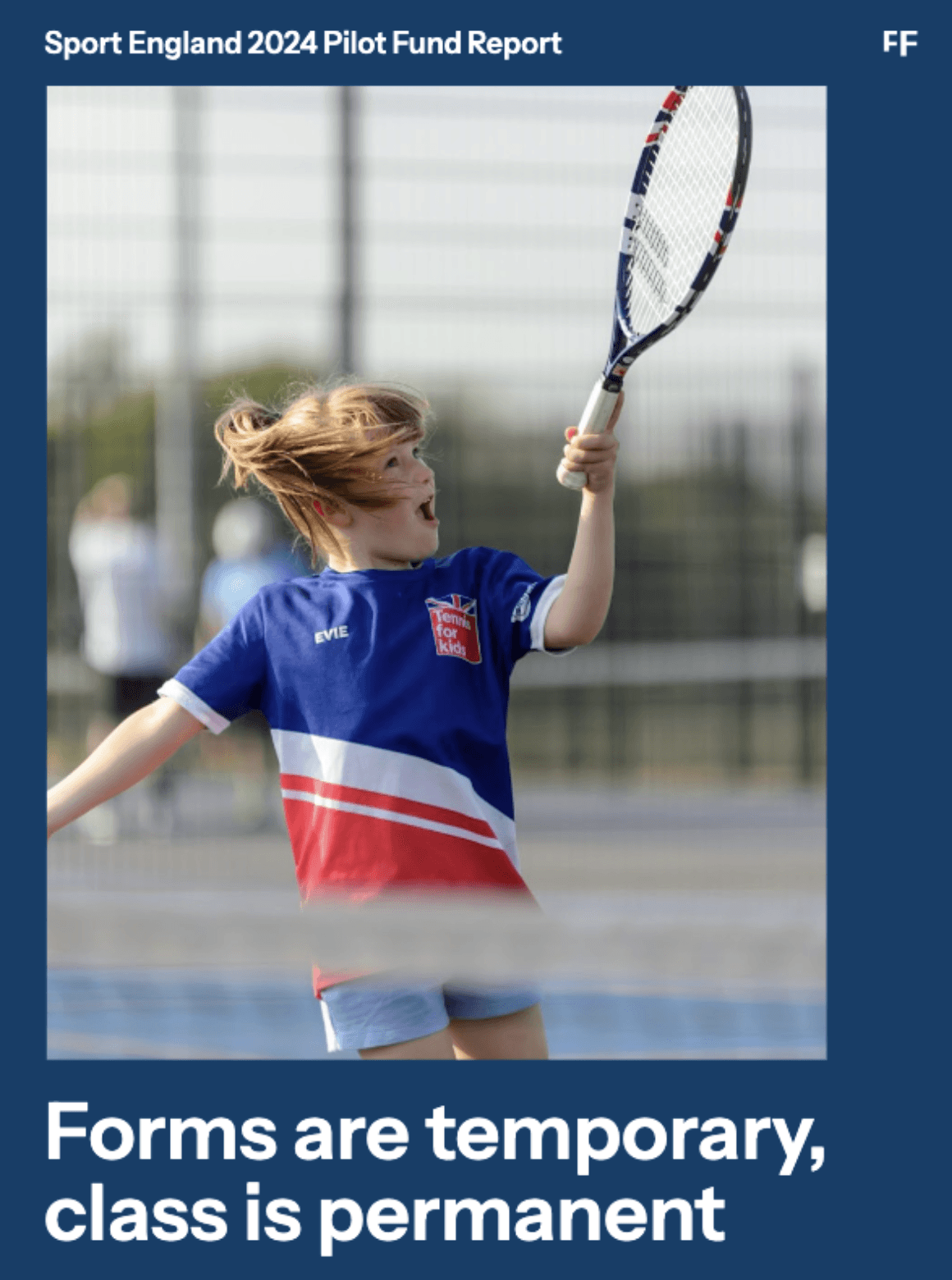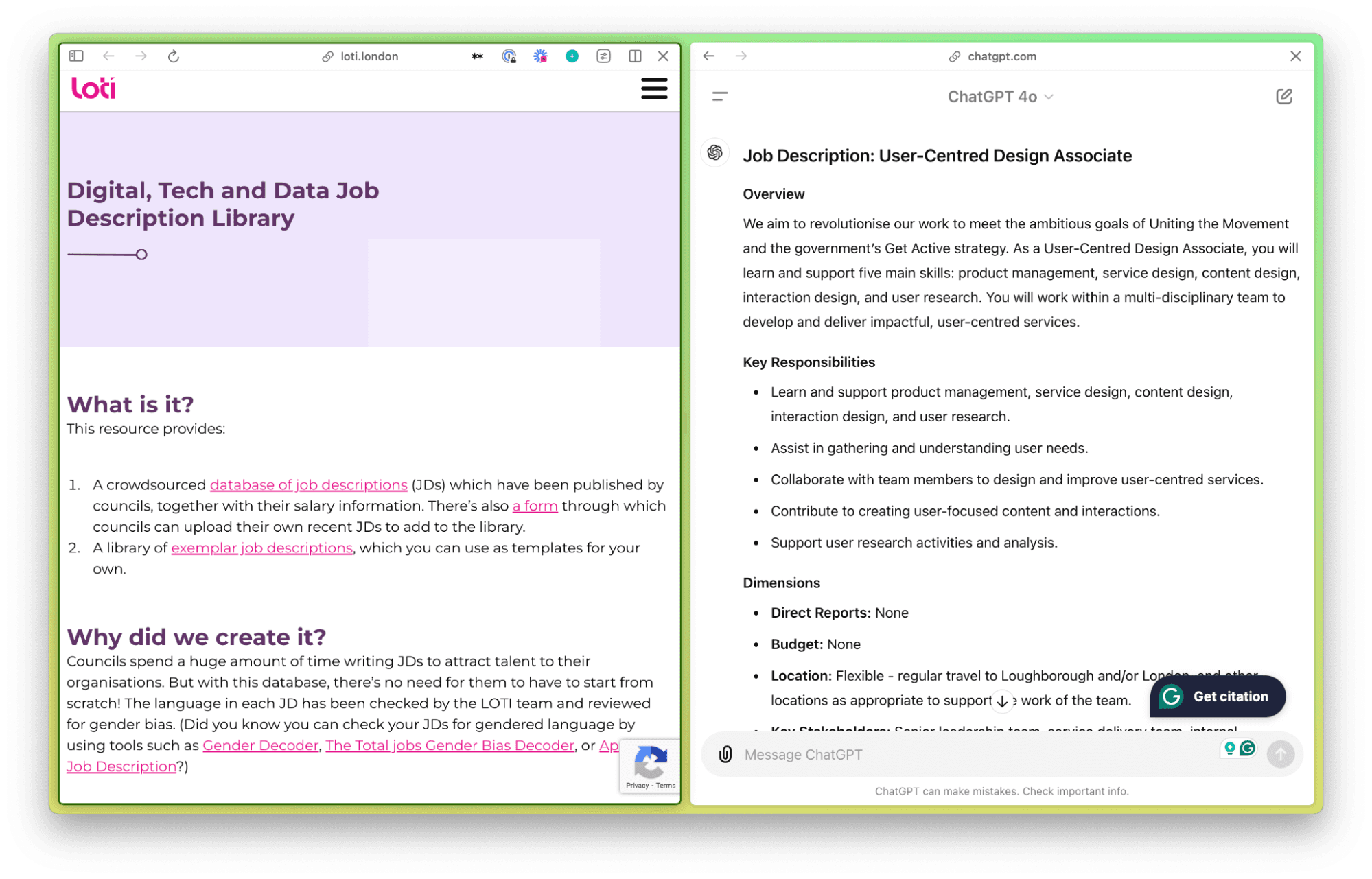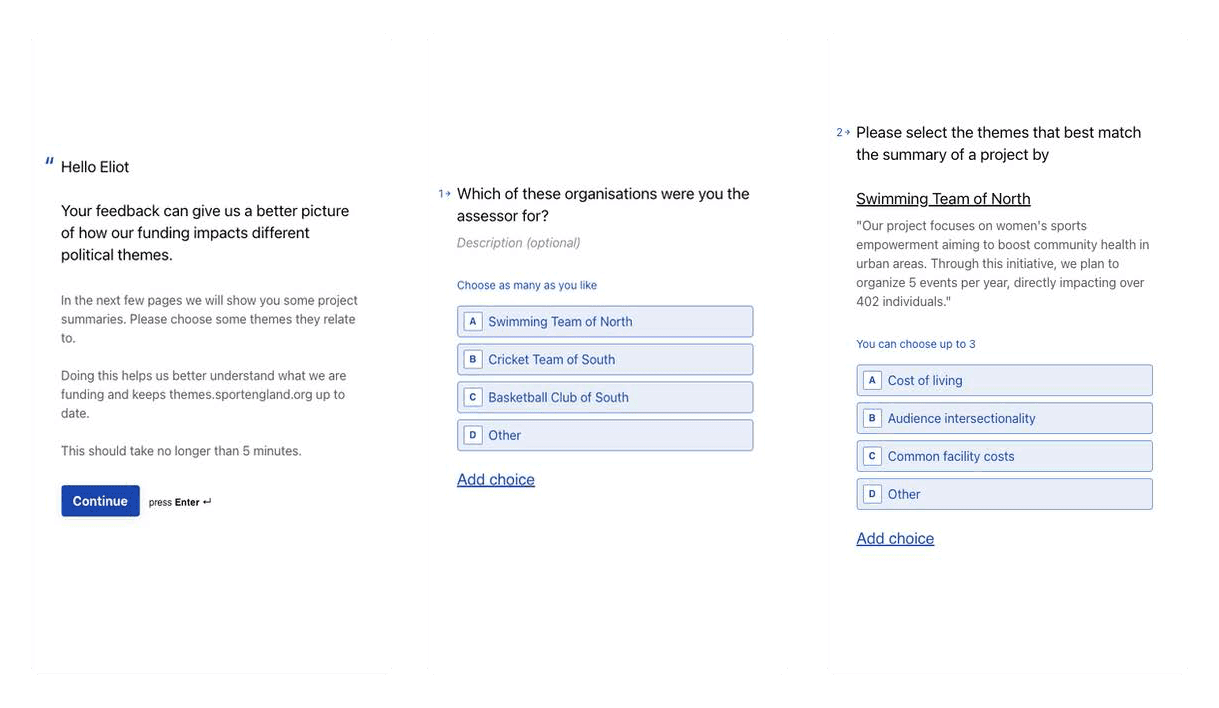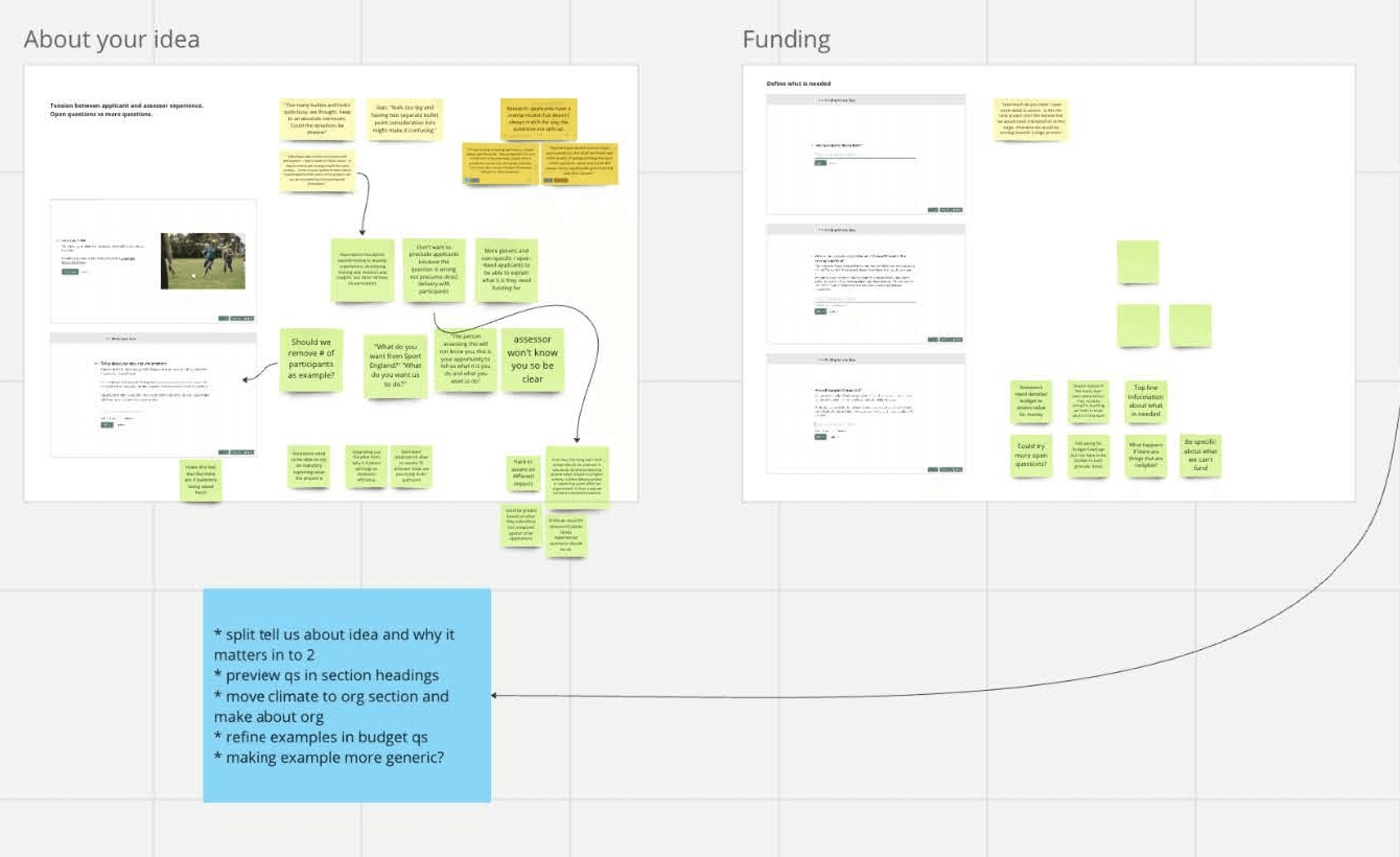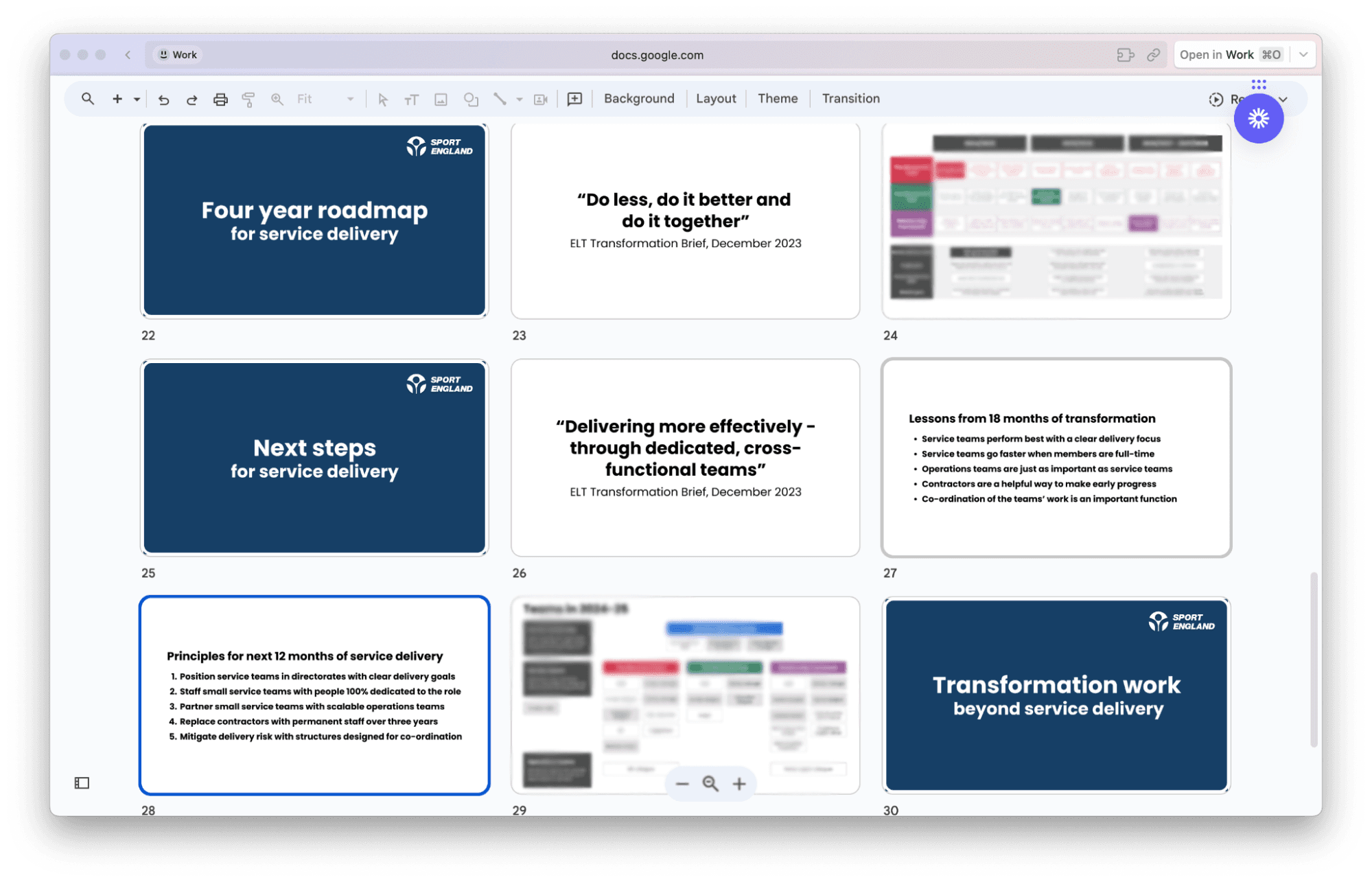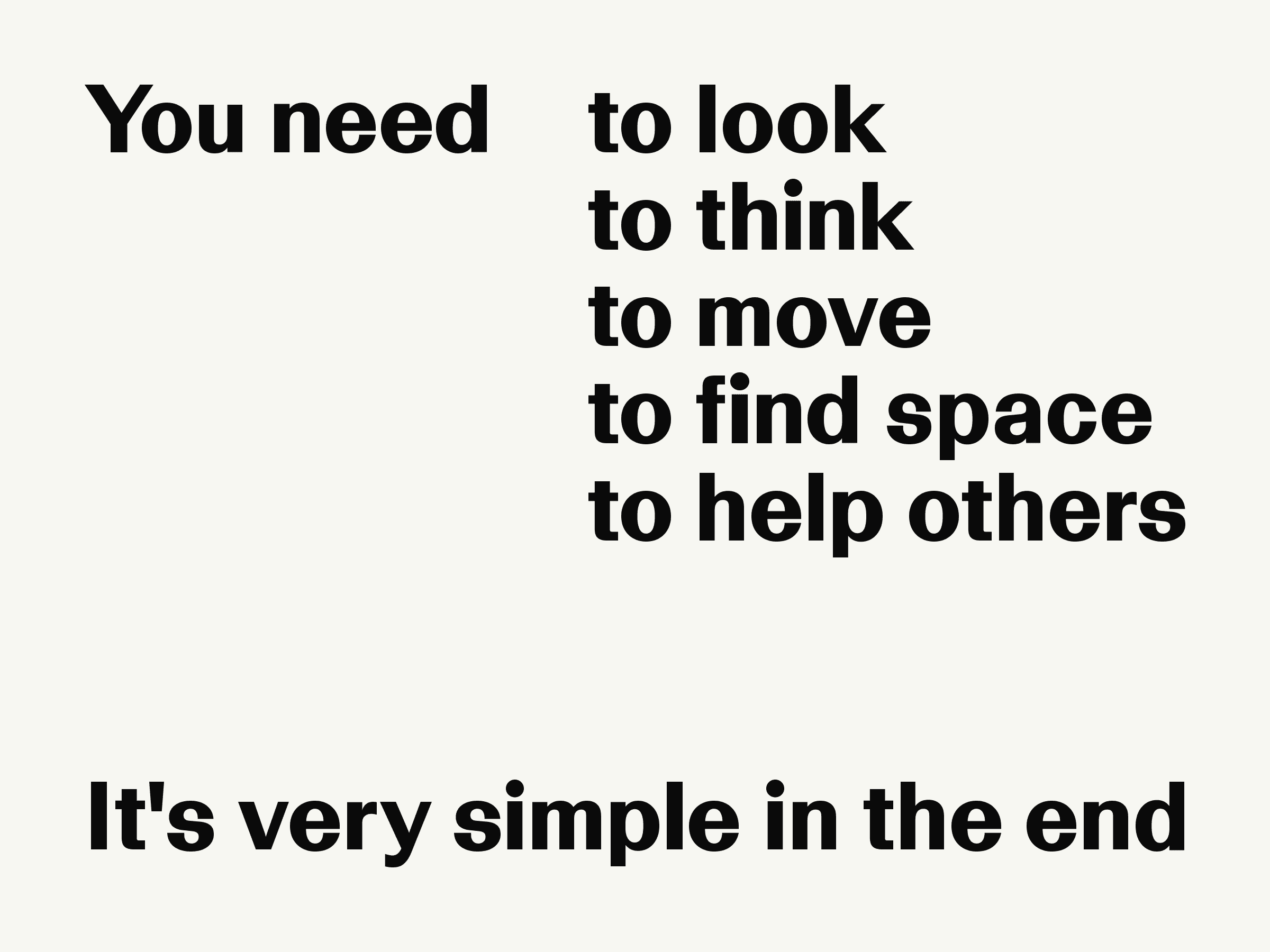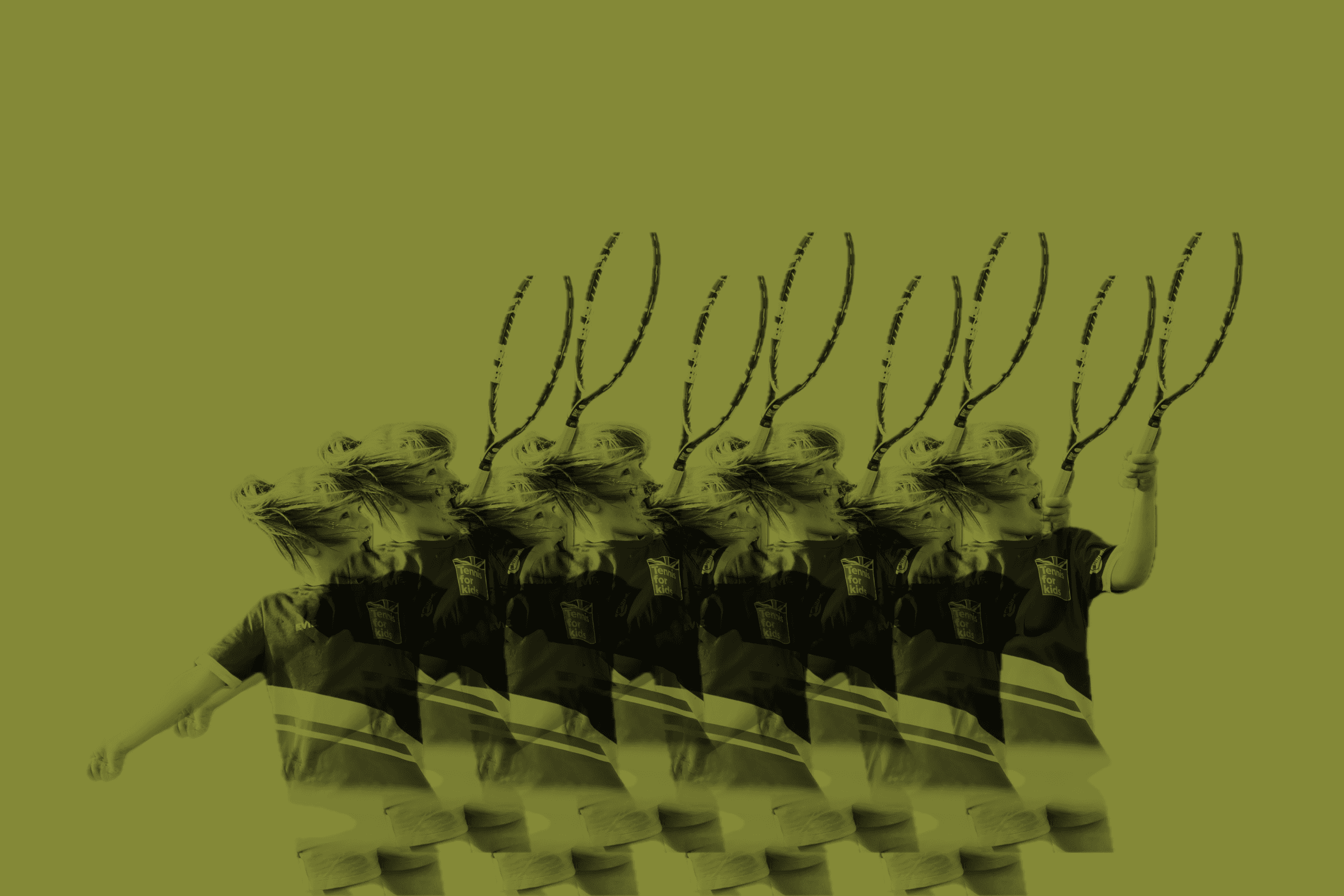
Sport England. A presentation about the future isn’t enough. To create the conditions for 21st century services you need to build little versions of that future now.
– Nick Pontefract - Executive Director of Strategy
Sport England invests more than £200m a year to make movement, sport and physical activity central to the lives of everyone, regardless of who they are. It’s funded through National Lottery funding and grant-in-aid from the Department for Culture, Media and Sport.
FF Studio’s work with Sport England started with a tiny project to help write some job descriptions for digital roles. Simple and helpful. But job descriptions sit in the next wider context: having appropriate and valuable projects ready for skilled people to do their best work. So we moved onto helping to design and run a pilot service - show, don’t tell.
That pilot was relatively successful, so recently we’ve moved onto scaling the approach to more teams. Scaling takes patience and a plan. So we facilitated the work to get that done.
Putting a plan into action takes knowing where you want to go, knowing how to put a team together, and crucially, knowing the really capable people and having their trust.
– Steve Garrett, Service Delivery Lead
Turn up, listen and be helpful.
Sport England had been thinking about and working towards ‘transformation’ for some time, and had made some early steps towards building multidisciplinary, mission-driven teams. As they started to build in-house capability, we were asked to write some job descriptions for some digital roles.
We wrote them, but really, we listened, were helpful, offered our experience, and we asked questions that revealed what the real issues were. We also brought our own perspectives and experiences of building multidisciplinary teams and running digital services.
We offered alternative ways of delivering things, knowing what was possible when delivering digital services in the public sector in a post-pandemic, post-austerity context.
Whilst job descriptions are the ”deliverables” - building of trust and understanding is the real work. It's the bringing together of perspectives and experiences that is valuable. You need to have been through this kind of thing before.
It's this early work that creates the environment for something firmer, clearer and more specific to emerge.
– Johan Cruyff
We formed a team of seven - five people from FF Studio, two from Sport England - and hit the ground running. We wanted to find out how many ‘norms’ of grantmaking and grantseeking could be questioned, pushed or changed within the pilot timeframe. We were unencumbered by previous technology choices, and wanted to identify how Sport England could make funding more accessible, accountable and equitable.
The team ran user research with sports clubs and community groups with grantseeking experience, and one other funding organisation. We tested what modern, off-the-shelf tooling and a focus on user experience (including for users with accessibility needs) might mean for fund applications. And we introduced questions about accessibility and climate action to the application process.
A pilot without delivery is a wasted opportunity.
Tradeoffs are everywhere, always. We deliberately optimised for momentum within the team: we focused on speed of progress, delivery and visibly demonstrating how new ways of working could support speed and outcomes. Our mantra for building and maintaining momentum was to start small, build quickly, learn even faster, work in the open, manage risks well, and deliver.
Optimising for momentum meant we learned what it might take to have people from different disciplines and directorates in Sport England collaborate in focused, autonomous teams. What decisions can a team take for itself? Where are the lines of coordination with other teams and senior leadership?
Speed can cause pain - alignment, orchestration, power all get out of whack when you work at a different pace layer to other parts of an organisation. We know this, so we kept on highlighting the risks around governance gaps and disagreements. This also reveals future opportunities for new ways of governing and working that cross organisational boundaries in helpful ways. We knew that we needed to strike the balance between shutting the noise out and bringing people in and along the journey. We think we got the balance right - but only time will tell.
Reflect, take feedback and go again.
We opened the fund for applications in December 2023, 10 weeks after forming the team. An internal team at Sport England assessed the applications against the fund criteria. Here are the headlines:
43 expressed interest and were invited, and 38 applied
17 were successful - 45%, with funding ranging from 174,669 to 250,000.
Total awarded: £3.5m
17 organisations were awarded funding. Half went to indoor and outdoor activity including walking and yoga. The other half went to more traditional sports-based initiatives. Benefitting groups included socio-economically deprived, long-term health conditions and/or disabilities, non-majority ethnic groups, learning and/or emotional and/or mental health conditions, women and girls, children and young people, and older adults, aged 75+.
What worked:
We believed that commodity off-the-shelf tools and platforms could be used to build an application process that embodied ideas about good service standards, was easy to use, was on time, and cost effective. We were right - the tools and skills exist to make this possible but are not widely used at Sport England.
We were confident that making the forms as real as possible as soon as possible and iterating would both improve our overall delivery time and reveal more opportunities to improve. We don’t have the counterfactual to compare to, but the fund successfully launched in 12 weeks.
Working in the open - weeknotes and shows and tells - helped us communicate effectively to the rest of the Sport England organisation, and helped us learn critical information faster than we would have otherwise done.
What didn’t work:
We believed that it was possible to run a small pilot “off grid” and bring it back in once completed. We were wrong: an invited fund needs senior management-level signatures, and we were coupled to governance, agreements and expectations outside our control.
We believed that we could run assessments within the boundaries of the multidisciplinary team we had. We were wrong. We depended on Sport England’s assessment expertise and should have taken their input sooner. Embedding Sport England team members in the delivery team was essential.
Sport England took this work forward into their Movement Fund.
– Tim Hollingsworth OBE, CEO
Projects are stepping stones. To go far, go together.
The transformation pilot created a space for follow-on phases of work. FF Studio ran a user segmentation review and a 2 month planning phase that bridged from pilot to wider service delivery - as Sport England decided to scale the pilot’s delivery approach to multiple teams.
We largely kept the same people working with Sport England, but in adapted roles as we underwent a shift in scale from pilot to organisation, and a shift in mode from “did it with you” to “support you to do it”.
These shifts mean that Sport England is taking more ownership, and FF Studio has become a collaborator and coach rather than a driver or outsourced supplier. That change is manifested in the people leading and delivering the work, and the roles they perform over time. But also in the deliberate adoption of the client’s colours and language, their platforms, and ultimately their culture.
Both handover and scale up are delicate and difficult processes, and they happen on a human timescale. We’re now working within the organisation’s pace layers rather than with them.
After the pilot concluded, we helped Sport England to develop a 12-18 month plan to build 4 service teams, plan and operate 3 services, and embed the ways of working in the wider organisation. The teams are being hired. In September 2024, FF Studio continues to work with Sport England, committed and sharing risk - we work with a month's notice.
After an eighteen month working relationship, we’re close and friendly - but it’s challenging, too. New ways of working ask questions of historic patterns of behaviours, structures and incentives. Change is challenging.
Increasing organisational capabilities and confidence
Even in a world that needs fewer consultants, hiring people with specific skills and record of delivery has a role. Judge us on:
Have the outcomes got better? Have services improved, and are more people active?
Have Sport England become more capable, self-sufficient and less reliant on external skills?
Have we gone? Has FF Studio left? Is the work we’ve left behind coherent? Are the people still working on these services feeling confident and clear?
Not all of this is within our gift, but our work is to try to make a “yes” answer to these questions more likely.
Project credits
FF team
Anna Goss
Eliot Fineberg
Kim Morley
Rod McLaren
Sonia Turcotte
Client team
Cassie Burgess
Sian Jones
Steve Garrett
